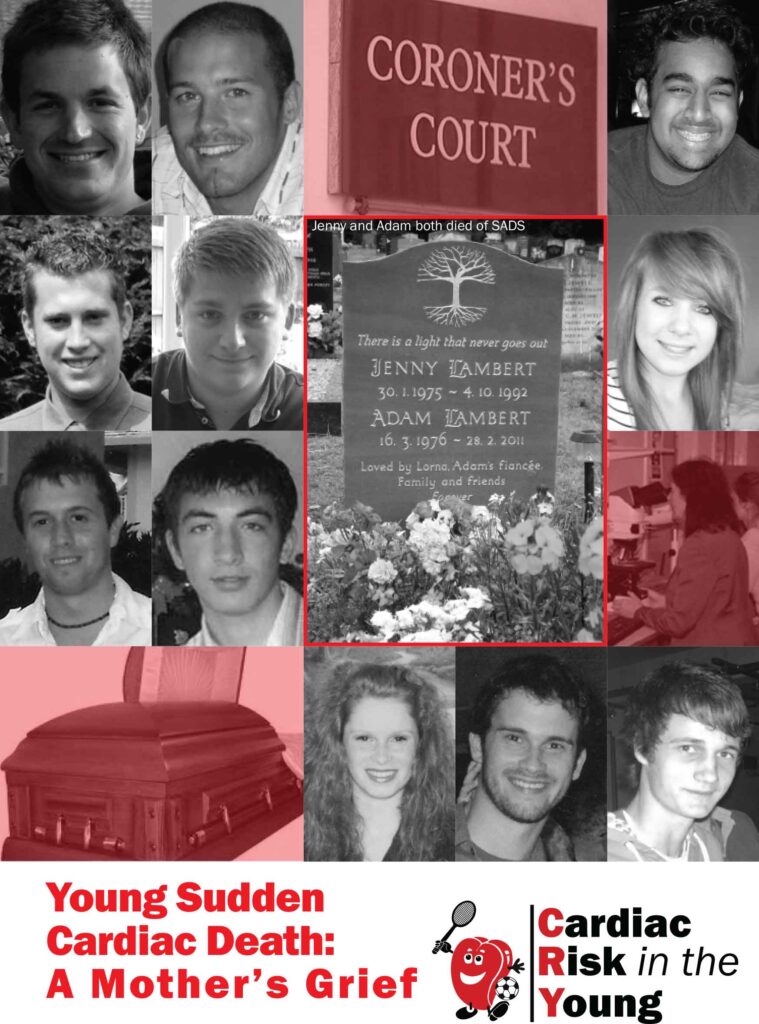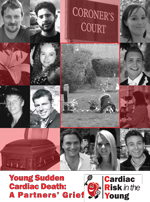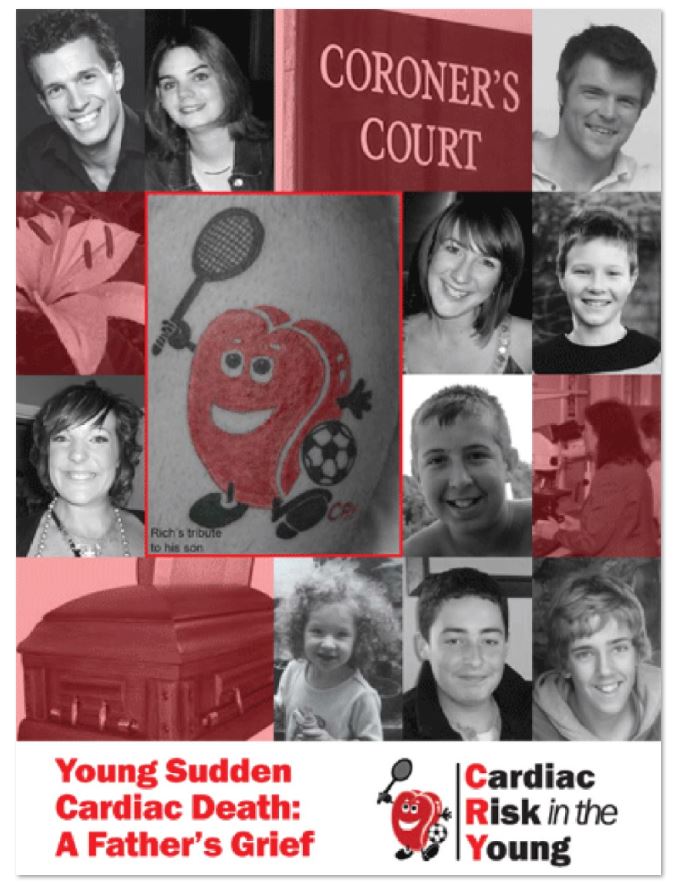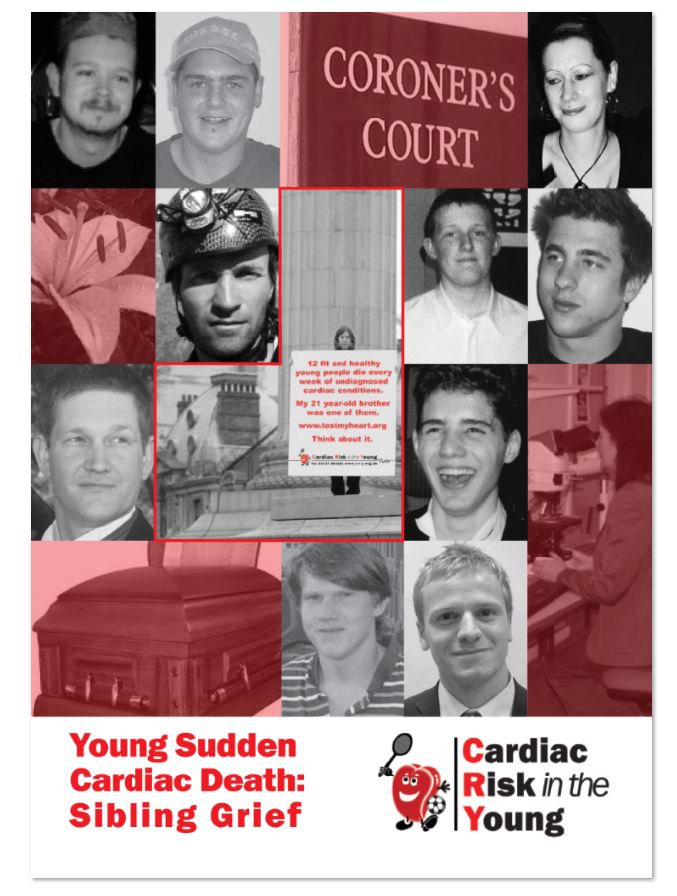 Sunday March 15th (Mother’s Day) bereavement experts from the charity Cardiac Risk in the Young (CRY) will be unveiling a powerful and moving new book for mother’s whose child (under the age of 35) has tragically died from young sudden cardiac death.
Sunday March 15th (Mother’s Day) bereavement experts from the charity Cardiac Risk in the Young (CRY) will be unveiling a powerful and moving new book for mother’s whose child (under the age of 35) has tragically died from young sudden cardiac death.
The booklet, ‘Young Sudden Cardiac Death: A Mother’s Grief’ which has been compiled by CRY’s Chief Executive & Founder and former bereavement counsellor, Alison Cox MBE, features 10 chapters from women who recount and talk through their personal experience of suddenly losing their son or daughter to a previously undiagnosed heart condition.
It will be officially launched to coincide with the weekend of Mothering Sunday – an important and special day for mothers across the UK, yet is one which will forever be unbearably hard for those women whose child has died. This is so whatever the circumstance, but is perhaps even more the case when that death has come suddenly and without warning or preparation.
It is with this in mind that the bereavement support team at CRY developed this latest booklet in the charity’s ‘grief series’*, knowing that bereaved mothers – and parents – often find most solace and support from others who have been through a similar experience.
Alison Cox says; “The impact on a mother of her child’s death is well documented but it is now properly recognised that they cannot be “replaced” by mother having another baby, “time does NOT heal” nor will mother one day “move on.” Family members all grieve differently but in a battle to help her partner, her other children or her own parents, a mum can become totally swamped by the shared mourning of their intolerable loss. Yet, craving to hear or say her dead child’s name to keep their memory alive can result in her subconsciously excluding the needs of other family members.
“The grief, the numbness, the barren despair of a mother dealing with the inexplicable sudden death of an apparently fit and healthy child, with no time to say goodbye establishes young sudden cardiac death at the cutting edge of grief. It is so out of order with the sequence of life that its effects are devastating. And then, to then learn that her child was carrying a genetic undiagnosed heart condition – leaving other children at risk until they have been screened – leaves her not only with her tragedy but also living with the terror that they too could be affected.
*previous booklets published in the Grief Series have included; ‘Dads’, ‘Siblings’ and ‘Partners’
Alison Cox adds; “It is my hope this booklet will not only help affected mothers, but also others to better understand why mum has such a massive battle to reinvent herself. Talking to someone outside your immediate family is often the most helpful way forward. These feelings can go deep inside and if you bottle them up, thinking you have them under control, they will probably resurface later. Expressing and recognising such feelings can help in your life’s journey to reconstruct a world that you know will never be the same again”
Every week in the UK, 12 young (that is, aged 35 and under) people die suddenly from a previously undiagnosed heart condition. 80% of these young people have no signs or symptoms and so the only way to detect a potentially sinister cardiac abnormality is by having a CRY screening test.
CRY’s Bereavement Support Programme offers telephone support through volunteers who have suffered the sudden cardiac death of a child, sibling or partner and who received two years of counselling training. CRY also holds regional and national bereavement support events across the UK for families who have been affected by young sudden cardiac death.
Next month (Saturday 18th April 2015) CRY is holding a Bereavement Support Day, exclusively for mums. The event will give attendees the chance to listen and talk to other bereaved mothers about their tragedy as well as sharing feelings and emotions from their own personal experience. Another will be held later in the year (September 2015)
Since 1995, CRY has received thousands of calls from families wanting to speak to others who have suffered similar tragedies. CRY has found that in many cases, no matter how much professional support is offered (either medical or therapeutic), sometimes just talking to someone who has been through a similar experience, can provide the best help.
Please click here to view Young Sudden Cardiac Death: A Mother’s Grief
Other CRY bereavement booklets:







